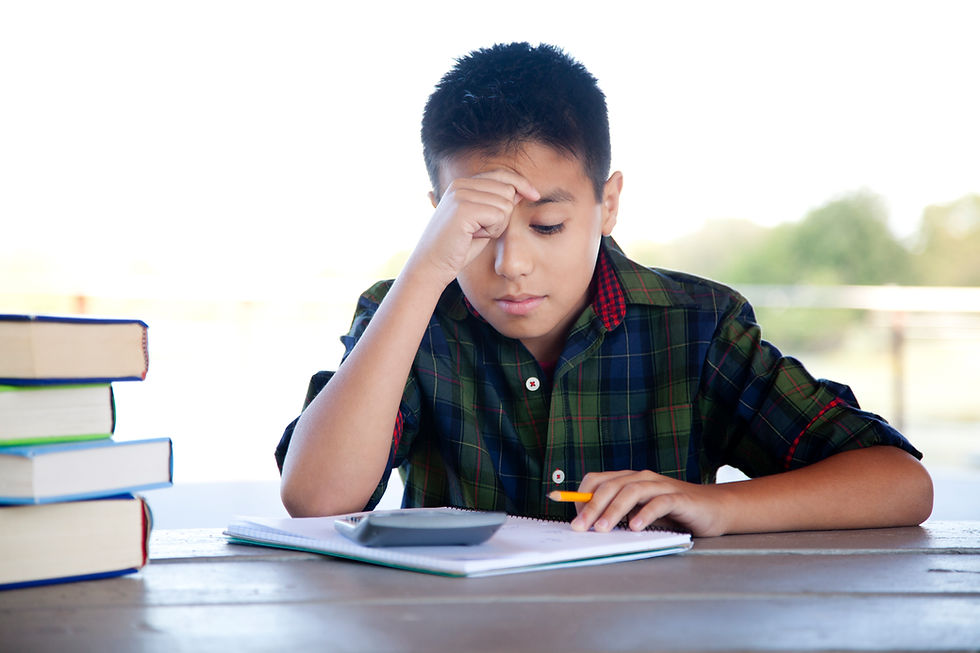Teachers are fed up with student misbehavior, classroom chaos
- Joanne Jacobs

- Jan 24, 2024
- 3 min read
The "new normal" of student behavior -- a toxic mix of disrespect, disruption, violence and apathy -- is driving teachers to despair, writes Daniel Buck.
In an online thread, thousands of teachers complain of students "throwing supplies, cussing out teachers" and refusing to do academic work, he writes. In a PBS story, teachers said "hitting, biting, spitting, throwing furniture" make classrooms chaotic. "Violence spiked in districts from North Carolina to Denver."
In Akron, Ohio, for example, the union threatened to walk out after a proposed district policy that would redefine “assault” as only incidences that resulted in injury. In Charlottesville, teachers staged an unofficial walkout, calling in sick on a Friday in November and forcing a shut-down the following Monday and Tuesday because of ubiquitous classroom violence. In Portland, a group of principals penned an open letter pleading for help with record-setting incidents of classroom disruptions and physical altercations.
Buck blames "pandemic-era disruptions in schooling and the subsequent unlearning of behavioral norms and habits, learning loss that fosters academic difficulties and so misbehavior, screen addictions, trends in permissive parenting, broader trends of societal disorder, lenient discipline fads in schools" and more.
The federal government has pushed lenient policies, he writes. Among other things, he suggests keeping decisions local, adopting a “broken windows” approach to school order and reporting the results of anonymous surveys. Districts that have done this receive teacher responses such as “we were told referrals would not require suspensions unless there was blood,” reports Max Eden.
Local unions could force change, Buck writes. "At the national level, the major unions have bought into soft-on-consequences discipline," but the locals are much closer to classroom teachers.

"The first goal of any student discipline policy should be to help students behave better," writes Fordham's Michael Petrilli. But that doesn't mean letting students "get away with bad behavior — cussing out their teachers; bullying their peers; interrupting instruction; much less engaging in violence." Instead, "we should focus instead on schoolwide approaches to helping students meet high behavioral standards."
Petrilli also wants to protect students who want to learn from disruptive classmates and stop driving teachers crazy -- and driving them out of the profession.
"A number of schools and districts are experimenting with various approaches, from much-improved versions of in-school suspensions to 'alternative placements'—other schools that kids attend for short to medium periods before returning to their home campuses," he writes.
It's a hard job, he writes. It's made even harder by the propensity to view "any effort to address student misbehavior as racially tainted."
Students who grow up without a father in the home and in a dangerous neighborhood are more likely to get in trouble in school, he writes. "Kids who are victims of abuse or neglect are more likely to get in trouble at school." Controlling for class makes most of the racial disparities disappear. "The (few) studies that have been able to control for underlying student behavior find that the racial gaps in punishment shrink to almost nothing."
It's just as bad in Britain, writes Kate Adams on UnHerd. Absenteeism is soaring, and behavior is deteriorating. Teachers are quitting.
Student misbehavior is seen as "an expression of unmet needs and staff need to make pupils feel emotionally safe before introducing any sanctions."
Schools in Scotland have adopted "a restorative approach that focuses on helping the offender process their emotions," writes Adams. The "rise in violence against staff in schools has led to a near-doubling in payouts due to workplace injuries over the last year.



Comments